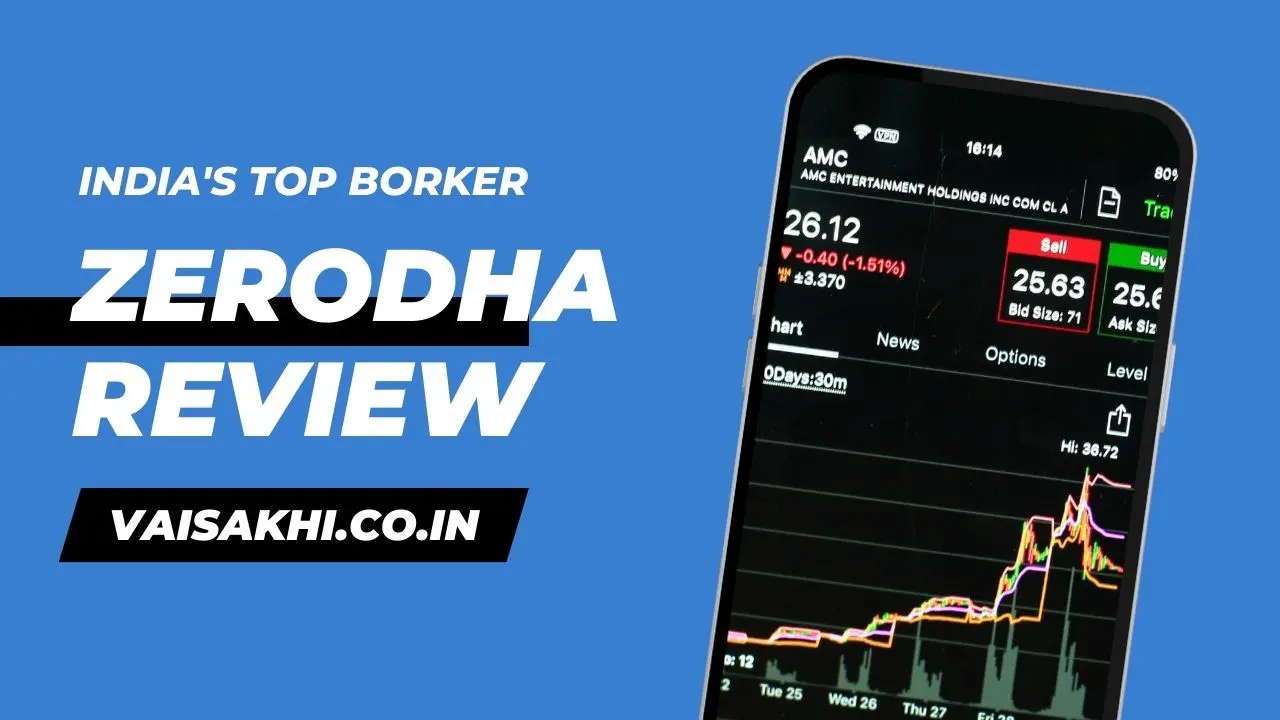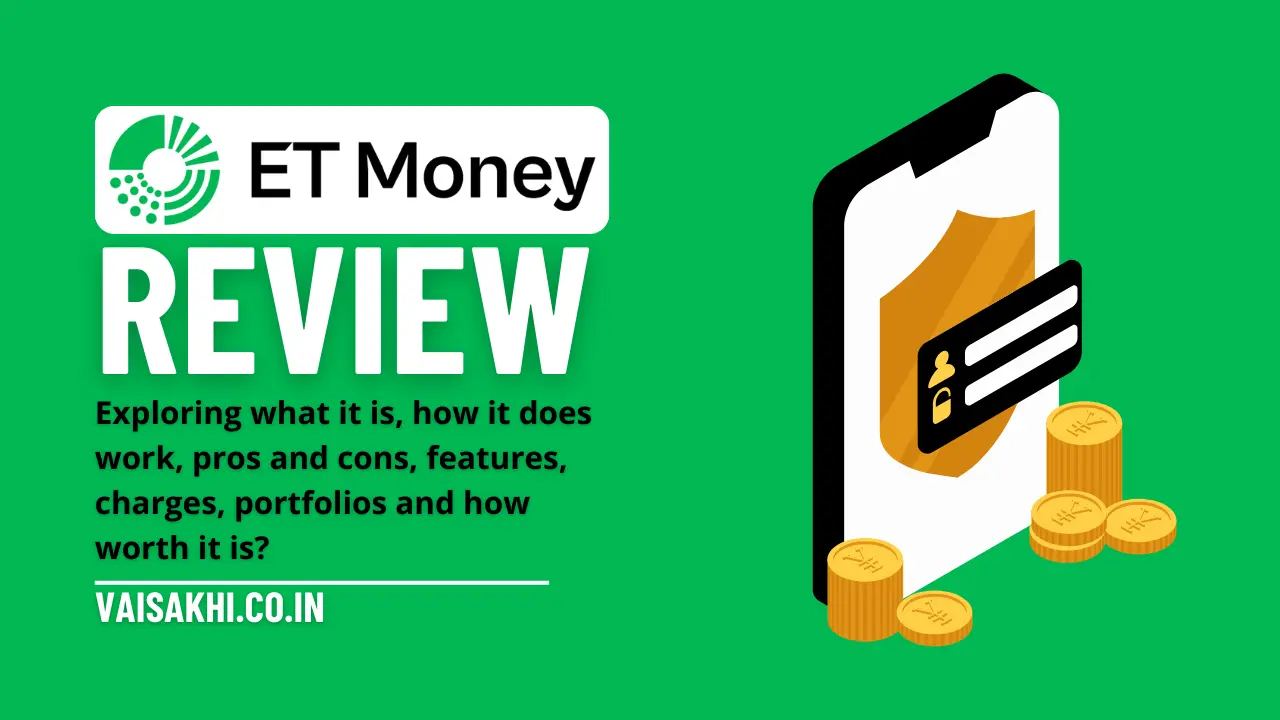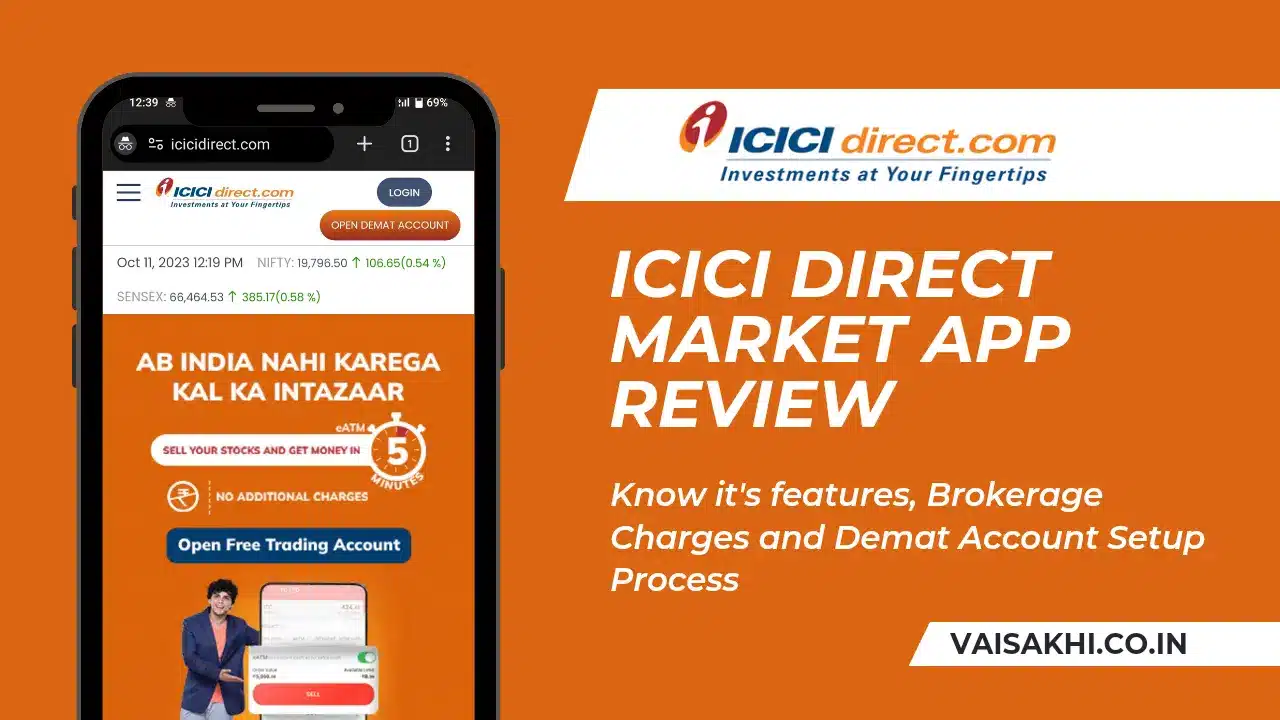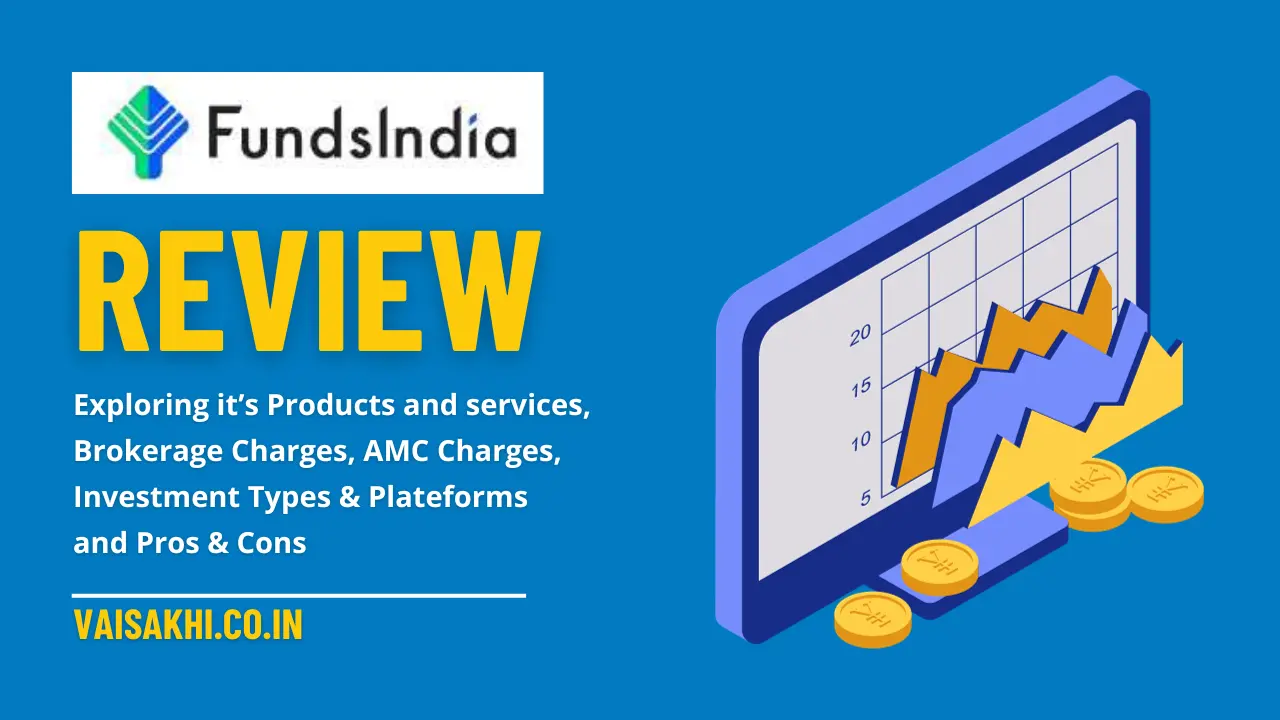Zerodha Trading App Review 2025: Zerodha is India’s largest stockbroker, with over 1 crore clients. It is also one of the most popular discount brokers, offering low brokerage fees and a variety of trading platforms. But is Zerodha SEBI registered? And is it a good choice for traders and investors?
In this blog post, we will give Zerodha trading app review 2025 and answer all of your questions. We will cover Zerodha’s features, pricing, customer support, and more. We will also tell you whether Zerodha is a safe and reliable broker.
Read on to learn more about Zerodha and whether it is the right broker for you!
Zerodha Trading App Review: What is Zerodha?
Zerodha, a leading financial services provider, offers its customers three mobile applications catering to different aspects of their investment and trading needs.
Each of these apps serves a unique purpose, enhancing the overall trading and investment experience for users.
| Mobile App | Purpose | Key Features |
|---|---|---|
| Zerodha Kite | Trading Anywhere | – Advanced trading platform – Trade from anywhere – Real-time market data |
| Zerodha Varsity | Stock Market Education | – Comprehensive stock market education – Interactive learning modules – Market insights and tutorials |
| Zerodha Coin | Online Mutual Fund Investments | – Easy mutual fund investments – Paperless transactions – Portfolio tracking |
Zerodha distinguishes itself through its technological prowess, making it stand out in the industry. The company has made substantial investments in developing cutting-edge proprietary trading platforms, ensuring that its customers have access to top-notch tools and resources.
Moreover, Zerodha goes beyond its proprietary offerings by granting customers access to a wide range of third-party trading software, further empowering them with diverse options to meet their trading needs.
Zerodha Key Features | Zerodha benefits
Zerodha is a prominent stock brokerage firm based in India that is known for its innovative and cost-effective trading platforms.
Here are some key features and offerings provided by Zerodha:
- Zero Brokerage on Equity Delivery: Zerodha offers zero brokerage charges for equity delivery trades, It means you don’t have to pay any commission when you buy and hold stocks for the long term.
- Low Brokerage Charges: For intraday trading and other segments like futures and options (F&O), commodity, and currency trading, Zerodha charges a flat and competitive brokerage fee, which makes it cost-effective for active traders.
- Kite Trading Platform: Zerodha provides the Kite trading platform, which is highly user-friendly and feature-rich. It offers advanced charting tools, technical indicators, market depth, and real-time data for better decision-making.
- Coin: Zerodha’s mutual fund platform, called Coin, allows investors to buy mutual funds with zero commissions directly from the platform. It provides a seamless way to invest in mutual funds online.
- Pi Trading Terminal: For advanced traders, Zerodha offers the Pi trading terminal, which is a desktop-based application with advanced charting and trading features.
- Margin Trading: Zerodha provides margin trading facilities to eligible clients, allowing them to trade with leverage by borrowing funds.
- Varsity: Zerodha’s educational initiative, Varsity, offers comprehensive educational material on various aspects of trading and investing, making it a valuable resource for both beginners and experienced traders.
- Console: This is Zerodha’s back-office platform that provides insights into your trading activities, account statements, and tax-related information.
- Streak: Zerodha Streak is an algorithmic trading platform that allows users to create and backtest trading strategies using technical indicators.
- Direct Market Access (DMA): Zerodha offers DMA, which allows institutional and high-frequency traders to place orders directly on stock exchanges.
- Stock Reports and Analysis: Zerodha provides research reports and analysis tools to help traders and investors make informed decisions.
- Customer Support: Zerodha is known for its responsive customer support through various channels, including phone, email, and online chat.
- Zerodha Varsity Mobile App: Zerodha offers a mobile app that provides access to trading, portfolio tracking, and market information on the go.
- SIP (Systematic Investment Plan): Zerodha allows users to set up SIPs for mutual fund investments, making it easy to invest regularly.
Zerodha Charges: what are zerodha charges?
Zerodha is one of the most popular stockbrokers in India, known for its low brokerage rates and advanced trading platforms. But how much does Zerodha actually charge?
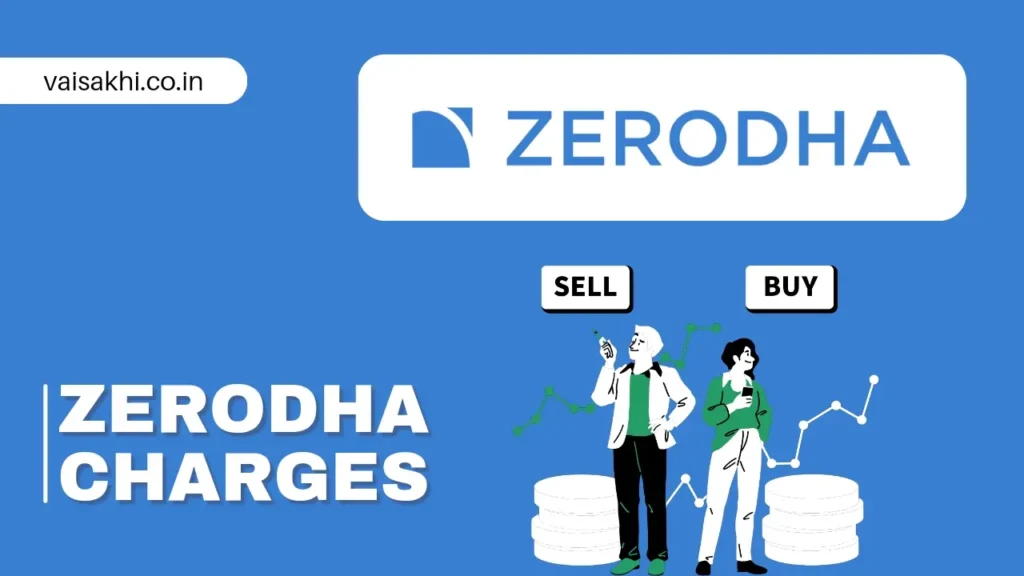
Zerodha Brokerage Charges
Zerodha offers a Flat Brokerage Plan with clear and straightforward pricing.
| Segment | Monthly Fee (Fixed) | Brokerage Fee |
|---|---|---|
| Equity Delivery | Rs 0 (Free) | No brokerage charges for equity delivery trades. |
| Equity Intraday | Rs 20 per executed order or 0.03%, whichever is lower. | |
| Equity Futures | Rs 20 per executed order or 0.03%, whichever is lower. | |
| Equity Options | Rs 20 per executed order. | |
| Currency Futures | Rs 20 per executed order or 0.03%, whichever is lower. | |
| Currency Options | Rs 20 per executed order. | |
| Commodity Futures | Rs 20 per executed order or 0.03%, whichever is lower. | |
| Commodity Options | Rs 20 per executed order. |
Zerodha Demat Account Charges
When considering opening and maintaining a Demat account with Zerodha, it’s important to understand the associated charges.
| Transaction | Charges |
|---|---|
| Demat Account Opening Charges | Rs 200 |
| Transaction Charges (Buy) | |
| Transaction Charges (Sell) | |
| Market Trades | Rs 13.5 + GST |
| Off-Market Trades | 0.03% of Rs 25 or higher (whichever is higher) + GST |
| Annual Maintenance Charges (AMC) | |
| Individuals/Non-Individual (except Corporate) | Rs 300 + GST |
| Non-Individual – Corporate | Rs 1000 |
| Demat + Courier Charges | |
| Per Certificate | Rs 150 (+ Rs 100 Courier charges) |
| Remat | |
| Per Certificate | Rs 150 + CDSL charges + Rs 100 Courier charges |
| Pledge Creation | Rs 30 per request + GST |
| Pledge Creation Confirmation | Rs 0 |
| Pledge Invocation | Rs 20 |
| Failed Transactions | Rs 50 per ISIN |
| Other Charges | |
| Cheque Bounce | Rs 350 |
| Physical Statement | Rs 50 (+ Courier charges at actual) |
| Modification in CML | Rs 25 per request |
| KRA Upload / Download | Rs 50 per request |
Zerodha Transaction Charges
| Segment | Transaction Fee |
|---|---|
| Equity Delivery | NSE: Rs 325 per Cr (0.00325%) |
| BSE: Rs 375 per Cr (0.00375%) (each side) | |
| Equity Intraday | NSE: Rs 325 per Cr (0.00325%) |
| BSE: Rs 375 per Cr (0.00375%) (sell side) | |
| Equity Futures | NSE: Rs 190 per Cr (0.0019%) |
| Equity Options | NSE: Rs 6250 per Cr (0.0625%) (on premium) |
| Currency Futures | NSE: Rs 90 per Cr (0.0009%) |
| BSE: Rs 25 per Cr (0.00025%) | |
| Currency Options | NSE: Rs 3500 per Cr (0.035%) (on premium) |
| BSE: Rs 100 per Cr (0.001%) (on premium) | |
| Commodity | Group A: Rs 260 per Cr (0.0026%) |
Zerodha Trading Charges/Taxes
| Tax/Charge | Rates |
|---|---|
| Securities Transaction Tax (STT) | |
| – Equity Delivery | 0.1% on both Buy and Sell |
| – Equity Intraday | 0.025% on the Sell Side |
| – Equity Futures | 0.01% on Sell Side |
| – Equity Options | 0.05% on Sell Side (on Premium) |
| – Commodity Futures | 0.01% on Sell Side (Non-Agri) |
| – Commodity Options | 0.05% on Sell Side |
| – Currency F&O | No STT |
| – On Exercise transaction | 0.125% |
| – Right to entitlement | 0.05% on Sell Side |
| Exchange Transaction Charges | Refer to the table above |
| GST (Goods and Services Tax) | 18% on (Brokerage + Transaction Charge + SEBI Fee) |
| SEBI (Securities and Exchange Board of India) Charges | 0.0001% (₹10/Crore) of the turnover (except for Agri futures where it is Rs 1 per crore) |
| Stamp Duty | (On buy side only) |
| – Equity Delivery | 0.015% |
| – Equity Intraday | 0.003% |
| – Equity Futures | 0.002% |
| – Equity Options | 0.003% |
| – Currency F&O | 0.0001% |
| – Commodity Futures | 0.002% (MCX) |
| – Commodity Options | 0.003% (MCX) |
These taxes and charges play a significant role in the overall cost of trading. It’s essential for traders and investors to be aware of these fees as they can impact the profitability of their trades.
Zerodha Account Opening Charges
Opening a trading and demat account with Zerodha is the first step to start your investment journey.
It’s essential to understand the charges associated with this process.
| Account Type | Equity | Equity + Commodity | NRI Account |
|---|---|---|---|
| Individual Account (online) | Rs 200 | Rs 300 | – |
| Individual Account (offline) | Rs 400 | Rs 600 | Rs 500 |
| Partnership, LLP, HUF or Corporate accounts (offline) | Rs 500 | Rs 800 | – |
Zerodha AMC Charges: What are Zerodha AMC Charges?
| Type of Account | Annual Maintenance Charges (AMC) | Frequency of Deduction | Additional Information |
|---|---|---|---|
| Trading/Demat AMC | Rs 300 per year | Rs 75 per quarter | – Demat AMC charges are applicable to all customers, regardless of account utilization. – 18% GST is levied on top of the Rs 75 AMC fee. – It is advisable to close the demat account if it’s not in use to avoid AMC charges. |
| NRI Account AMC | Rs 500 per year | Annually | – This charge is specific to NRI accounts. |
Zerodha charges an Annual Maintenance Charge (AMC) of Rs 300 per year for trading and demat accounts. Customers are debited Rs 75 from their trading account every quarter (approximately every 90 days).
It’s important to note that these charges are applicable to all customers, regardless of their account utilization. Additionally, an 18% Goods and Services Tax (GST) is applied on top of the Rs 75 AMC fee.
For NRI accounts, the AMC charge is Rs 500 per year, deducted annually.
Zerodha Demat Account Open Online: How to open Zerodha Account?
Following these steps, you can easily open a Zerodha trading and demat account online.
- Visit Zerodha.com: Go to Zerodha’s official website.
- Click Signup: Find the signup button on the top menu’s right-hand side.
- Enter Mobile Number: Provide your mobile number.
- OTP Verification: You’ll receive an OTP on your mobile phone. Enter it.
- Fill in Details: In the process, you’ll need to enter your details, PAN card information, and bank account details.
Documents Required to Open a Zerodha Account
To open a Zerodha account, you’ll need these documents:
- PAN Card Copy: A copy of your PAN card is essential.
- Aadhar Card: This is mandatory if you want to open your account online.
- Cancelled Cheque or Bank Statement: Provide a cancelled cheque or your latest bank statement.
- Signature Copy: A photo or scanned copy of your signature.
- Income Proof: If you plan to trade in Futures and Options, you can submit documents like a 6-month bank statement, your latest salary slips, Form-16, Income Tax Return Acknowledgment, Demat holding statement, or a net worth certificate from a Chartered Accountant.
What is BO id in Zerodha?
In Zerodha, BO ID stands for “Beneficiary Owner Identification.” It is a unique identification number associated with your Demat account.
The BO ID is used to distinguish your Demat account from others and is an essential component when conducting transactions involving the delivery of shares or other securities.
Each Demat account holder is assigned a distinct BO ID, which is used to track the ownership and movement of securities in the account.
When you buy or sell shares, the BO ID ensures that the securities are correctly credited or debited to your Demat account.
You can find your BO ID mentioned in your Demat account statement, which you receive regularly to keep track of your holdings and transactions.
It is a crucial piece of information for managing and monitoring your investments through Zerodha.
How to close Zerodha account?
If you have a Zerodha Trading and Demat account that you’re not using anymore, it’s a good idea to close it. This prevents you from paying unnecessary fees and reduces the risk of someone else using your account without your knowledge.
How to Close Your Zerodha Account:
- Inactive Account: If your Zerodha account remains inactive for 6 months, it will become dormant. You can reactivate it by getting in touch with Zerodha.
- Account Closure: To close your Zerodha account, you need to submit an “Account Closure” application. You can’t do this online or by calling customer support. You have to download the closure form from Zerodha’s website in the ‘Downloads & Resources’ section.
- Fill and Sign: Fill out the form, sign it, and then send it to Zerodha’s office in Bangalore by courier.
- Processing Time: It may take up to 2 working days for Zerodha to close your account. They will send you email updates about the status of your account closure.
- Clear Dues: Before closing your account, make sure you’ve paid off any outstanding dues or charges.
- Transfer Securities: If you have any stocks or investments in your Zerodha Demat account, transfer them to another Demat account you have.
- No Closing Charges: Zerodha doesn’t charge any fees for closing your account.
Closing your Zerodha account is a straightforward process. Just remember to clear your dues, transfer your securities, and follow the steps mentioned to submit your closure request.
What is delivery margin in Zerodha?
Delivery margin in Zerodha is the amount of money that needs to be maintained in your Zerodha account when you sell shares from your demat account. It is typically 20% of the value of the shares sold.
The delivery margin is blocked to ensure that you have enough funds to deliver the shares to the buyer on the settlement date. If you do not have enough delivery margin, your trade may be cancelled.
The delivery margin is released from your account on the next trading day after the settlement date.
Is Zerodha SEBI Registered?
Yes, Zerodha is SEBI registered. Zerodha’s SEBI registration number is INZ000031633 for Cash/Derivatives/Currency Derivatives segments of NSE & BSE. You can verify Zerodha’s SEBI registration on the SEBI website.
Zerodha is also a registered member of BSE, NSE, MCX, and NCDEX exchanges.
FAQs
Who is the founder of Zerodha?
Zerodha was founded by Nithin Kamath in 2010.
What is Zerodha?
Zerodha is a leading Indian stockbroker that offers a wide range of products and services, including equity trading, F&O trading, currency trading, commodity trading, IPOs, mutual funds, and bonds.
Is Zerodha Safe and Reliable?
| Aspect | Information |
|---|---|
| Trustworthiness of Zerodha | Zerodha is among India’s most trusted stockbrokers due to its transparent business practices, clear vision of its founders, and zero major violations reported to date. |
| Regulatory Compliance | Zerodha is registered with SEBI and is a member of BSE, NSE, MCX, and NCDEX, ensuring adherence to strict regulatory standards. |
| Experience and Audits | With over a decade of experience (since 2010), Zerodha undergoes regular audits by exchanges and SEBI. No major regulatory violations have been reported as of Jan 2024. |
| Rumors and Social Media | Despite rumors on social media, none of them have been substantiated, and Zerodha remains a reputable and trustworthy brokerage. |
Safety of Your Investments:
| Concerns | Information |
|---|---|
| Keeping Investments Safe with Zerodha | Zerodha’s commitment to regulatory compliance, transparent practices, and its track record make it a safe platform for keeping your investments. |
| What if Zerodha Goes Out of Business? | In the unlikely event of Zerodha facing financial issues, your securities are held in a demat account with CDSL, ensuring the safety of your investments even in such scenarios. |
Conclusion: Zerodha Trading App Review
Zerodha is a safe and reliable choice for your stock trading and investment needs in India. Its strong adherence to regulations, clear business practices, and unblemished track record demonstrate its commitment to safeguarding your investments.
Additionally, the presence of regulatory bodies like SEBI and the use of demat accounts with CDSL provide additional layers of security for your assets, even in rare circumstances where Zerodha might face financial challenges.
Rest assured, your investments are in trustworthy hands with Zerodha.
Also Read:
